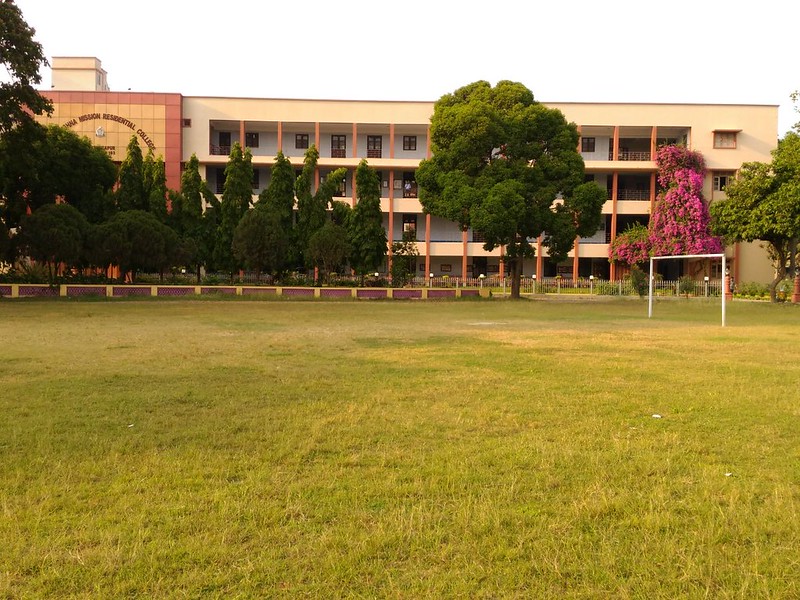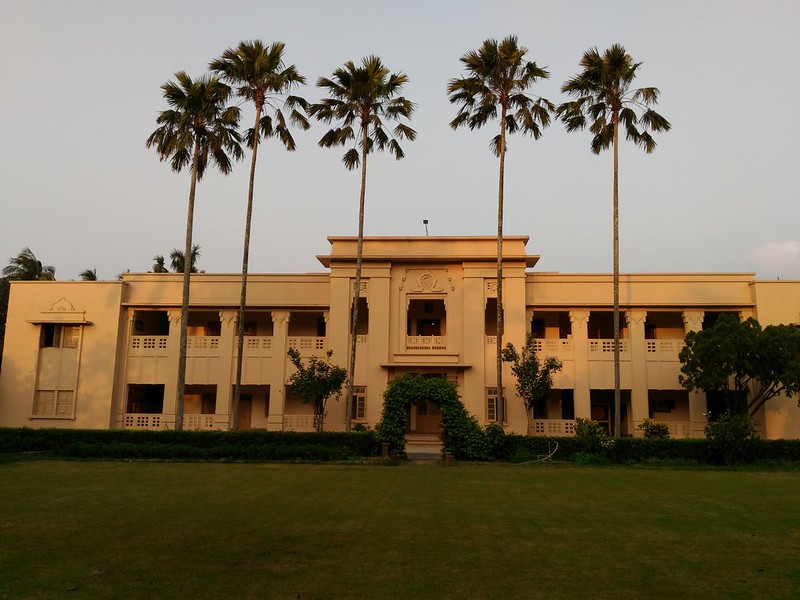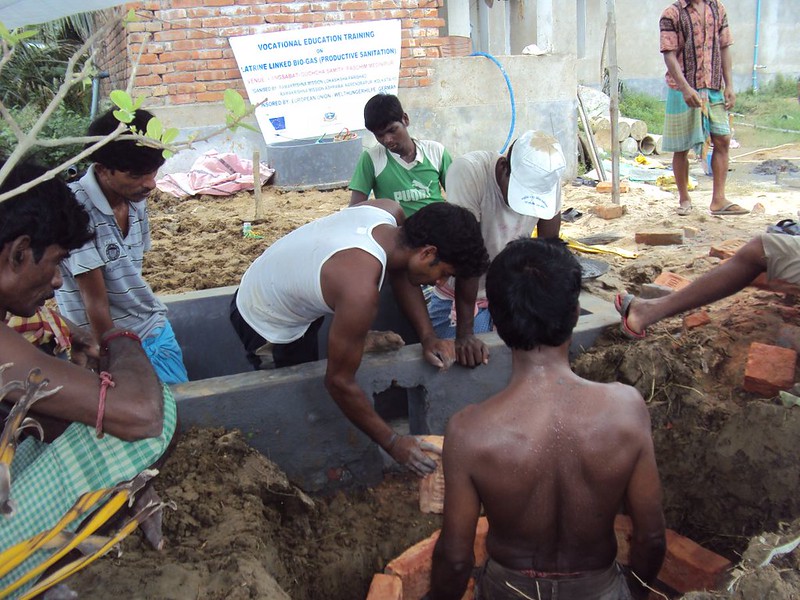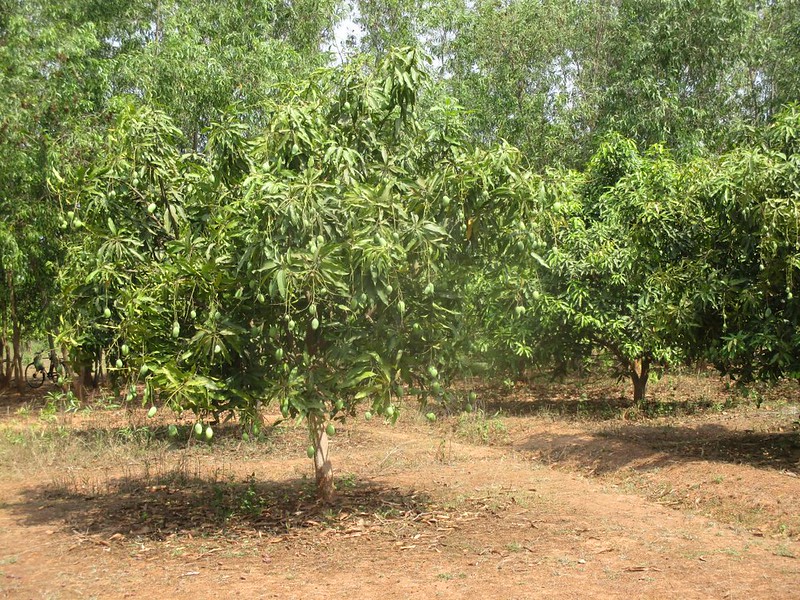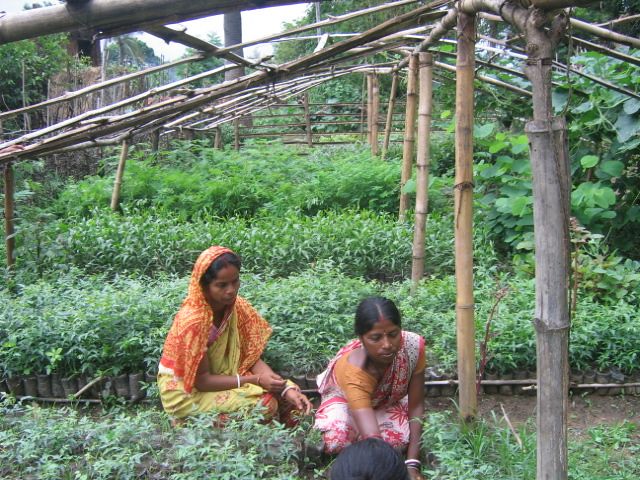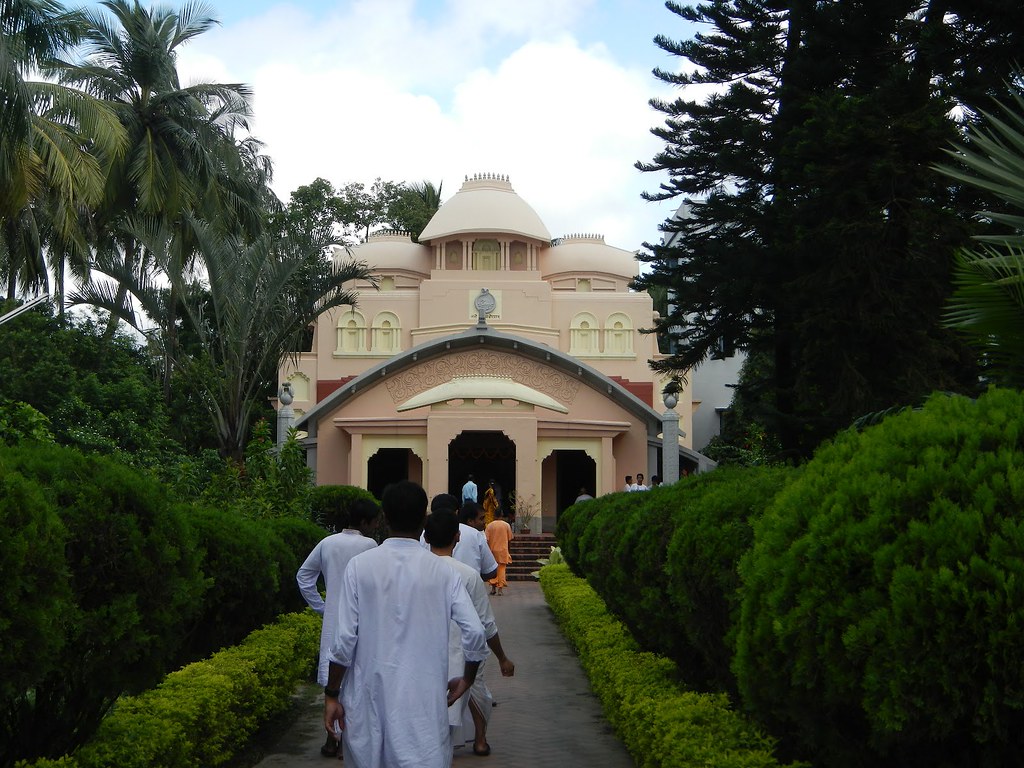
Started in 1943 in North Kolkata and later moved to Narendrapur, this ashrama runs many institutions.
Activities:
- A residential autonomous degree college offering graduate and postgraduate courses in arts and science subjects.
- A residential higher secondary school (classes 5 to 12).
- Eight non-residential primary schools.
- A kindergarten.
- Blind Boys’ Academy: (i) a residential higher secondary school, that offers general education as well as training in computer operations, music and crafts, had blind boys, all of whom received substantial financial assistance; (ii) a library with 39,851 Braille volumes, 10,864 ink-print volumes, 882 audio books and 4 periodicals; (iii) Regional Braille Press published 13 new titles and 147 reprints in English, Bengali and Sanskrit, in addition to various textbooks; (iv) Teachers’ Training Institute offering BEd (Special Education in Visual Impairment); (v) Industrial Training Institute (ITI) offering training in two trades, viz. metal cutting and computer operations and programming assistant; (vi) A training-cum-production project in the mushroom cultivation, agriculture, animal husbandry, spice grinding, aluminium sticks, etc.
- A department of technical and vocational education which has the following units: (a) an Industrial Training Institute; (b) a vocational training centre (electrical and automobile trades); (c) short-term courses in electrical winding and automobile mechanic; (d) automobile training centre with courses like automobile technician, servicing, and driving course.
- A commerce institute offering courses in shorthand, typewriting, spoken English, computer operations, AutoCAD, etc in which.
- Two public libraries with 1,01,425 books.
- Lokasiksha Parishad (an institute for social welfare and integrated rural development), which conducted the following activities through 258 rural youth organizations, 3 project offices and 25 cluster organizations spread in 12 districts of West Bengal:
- Educational activities: (a) two study centres of State Open School; (b) a library with 26,372 books and 3 periodicals; (c) a publication unit that publishes journals, newsletters and audio CDs in English and Bengali; (d) publication of the Bengali monthly Samaj Siksha and books (total number of titles: 267); (e) preaching at different places; (f) study circles; (g) values education programmes.
- Women and child development activities: (a) a mobile unit for conducting workshops, seminars and programmes for development of character, personality and culture; (b) ninety-seven centres of Early Childhood Education spread over 8 districts with growth monitoring; (c) comprehensive education and guidance by Vivekananda Child Development Fund (VCDF) under Child Sponsorship Programme; (d) Integrated Child Development Services (ICDS) project with education, immunization, family welfare and healthcare services in 17 municipal wards of North Kolkata through 125 anganwadi centres serving the poor sections of the population. ICDS also trains supervisors, anganwadi workers and helpers; (e) Maa Sarada Women Development Programme with the objective to empower backward and underprivileged women.
- Animal resource development programme: Youths were trained in dairy and poultry management, and cattle growers were provided with veterinary clinic services and technical guidance.
- Vocational training in various courses ranging from agricultural to industrial trades.
- Health, Water, Sanitation & Environment: (a) improving WASH standards in schools under Nirmal Vidyalaya initiative in Purulia partnering with the UNICEF and Sarva Siksha Mission, Purulia; (b) construction of 5994 low-cost toilets in 1126 villages, 6 toilet blocks in schools and awareness programmes to demonstrate good hygiene practices; (c) Water Quality Monitoring and Surveillance (WQMS); (d) Drinking Water Improvement programmes.
- (a) Plantation programme; (b) early childhood education centres; (c) green college programmes- training rural school dropouts on certified green trades; (d) empowerment of downtrodden women programme by imparting vocational training to indigent women.
- Solar Energy programme- promotion and utilization of renewable energy in non-electrified areas.
- Agriculture Training Centre (ATC) and State Agricultural Management and Extension Training Institute (SAMETI): These units conducted the following activities: (i) 126 medium and short-term programmes; (ii) a postgraduate diploma course (917 officers were on the roll); (iii) one-year diploma course in Agricultural Extension Service for the input dealers (1749 input dealers in 45 batches); (iv) 12-week certificate course on insecticide management; (v) skill training programmes; National Food Security Mission for increasing the production and productivity of oilseeds; (vii) demonstration and trial of advanced farming technologies; (viii) distribution of quality seeds; and (ix) soil testing.
- Activities under the off-campus centre of RKMVERI (deemed university):
- Faculty of Integrated Rural Development and Management (FIRDM) offers MSc and PhD programmes in (i) Agricultural Biotechnology, (ii) Agriculture and Rural Development, (iii) Genetics and Plant Breeding, (iv) Environment and Disaster Management, (v) Agronomy, (vi) Medical Biotechnology, and (vii) MSc Programme on Post Harvest and Food Technology.
- Vocational training in food processing.
- A Krishi Vigyan Kendra (KVK), named Sasya Shyamala Krishi Vigyan Kendra, is located at Arapanch village in South 24 Parganas district. It aims to develop the socio-economic condition of the farming community by transfer of technology in the fields of agriculture, horticulture, animal husbandry and aquaculture. The KVK conducted various training programmes and demonstrations (4355 participants), and engaged itself in the production of seed, livestock, and bio-products.
- Vivekananda Social Welfare Centre, meant mainly for the underprivileged living in the slums of Rambagan in northern Kolkata, conducts the following activities: (i) a dispensary that treated 2416 patients; (ii) a vocational training centres; and (iii) a child welfare scheme.
- A book bank and educational aid facilities for farmers’ children benefiting 891 rural children.
- A Medicinal Plant Research and Extension Centre, with over 200 species of medicinal plants grown in an area of 4 acres, undertook research, training and demonstration activities.
- A Quality Testing Laboratory for quality assessment of herbal drugs, especially ayurveda, siddha and unani drugs.
- A dispensary with allopathy, homeopathy and ayurveda sections, and a panchakarma unit.
- A mobile medical unit.
- Two units of Gadadhar Abhyudaya Prakalpa.
- A museum named Environment and Man.
- Welfare work: Providing food, milk, clothes, blankets, ration kits, hygiene kits, educational kits and pecuniary, medical and educational aid.
- Religious activities: Celebration of the birthdays of the Holy Trio and major religious festivals.
)
)
